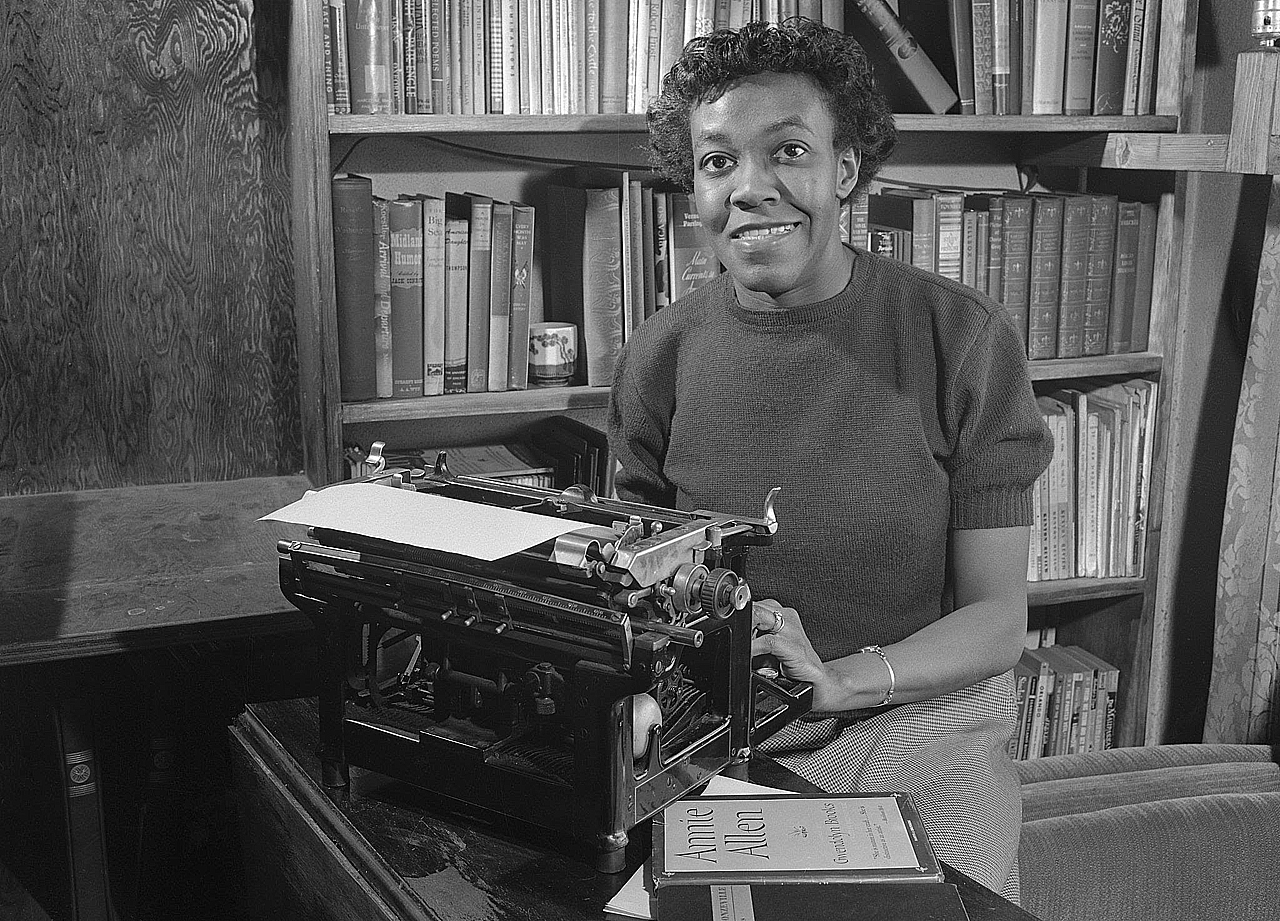Gwendolyn Brooks was popularly known as an American poet, novelist, and teacher. She lived from June 7, 1917, and died on December 3, 2000. She was known for her insightful and politically charged poetry and was acknowledged and recognized with the Pulitzer Award. This made her the first African-American woman to receive this award in 1950. She was born in Topeka, Kansas. Her family moved to the south side of Chicago when she was a child. Her background in a locally divided area significantly impacted her writing. She went to Hyde Park High School before attending Wilson Junior College (now Kennedy-King College), and in 1936, she graduated.
She composed and published her first poem, “Eventide,” at a young age. This was featured in an American kid’s magazine when she was 13 years old. She composed and published her first collection of poetry, titled “A Street in Bronzeville,” in 1950, and Richard Wright, a fellow Chicagoan, appreciated the collection. In 1953, she published her second collection of poetry titled “Annie Allen.” When she was sixteen, Brooks became a frequent writer for the Chicago Defender’s “Lights and Shadows” poetry section.
In her mid-twenties, Brooks participated in poetry seminars at the South Side Community Art Center, which helped her advance both her poetic ability and knowledge. She honed her poetic voice during these sessions, and renowned American poet Langston Hughes stopped by a class session to hear her perform her poem “The Ballad of Pearl May Lee” (1945).
Don’t let anyone call you a minority if you’re black or Hispanic or belong to some other ethnic group. You’re not less than anybody else
Gwendolyn Brooks
She also published Young Poet’s Primer in 1980, Primer for Blacks in 1987, Blacks as well in 1987, Winnie in 1988, in 1981, Brooks published Disembark, in 1986, she published, The Near-Johannesburg Boy and Other Poems, and Children Coming Home in 1991. In 1968, Brooks was named poet laureate for the state of Illinois. She joined the National Institute of Arts and Letters, becoming the first African American to
participate in 1976. But she received the Illinois title in 1968. Also, she became the first Black woman appointed as a poetry consultant to the Library of Congress (now poet laureate).
During her career, Brooks received more than fifty degrees with honors like the Frost Medal, Shelley Memorial Award, National Endowment for Arts Award, American Academy of Arts and Letters Award, and the Academy of American Poets and Guggenheim Foundation fellowships. But the National Medal of Arts was given to her in 1995. Brooks had a successful career as a teacher in addition to her writing career. She had her first teaching experience when she was admitted to teach American Literature at the University of Chicago by Frank London Brown. She became a creative writing instructor at a number of schools, including Northeastern Illinois, City College of New York, and Columbia College in Chicago.
A writer should get as much education as possible, but just going to school is not
Gwendolyn Brooks
enough; if it were, all owners of doctorates would be inspired writers
